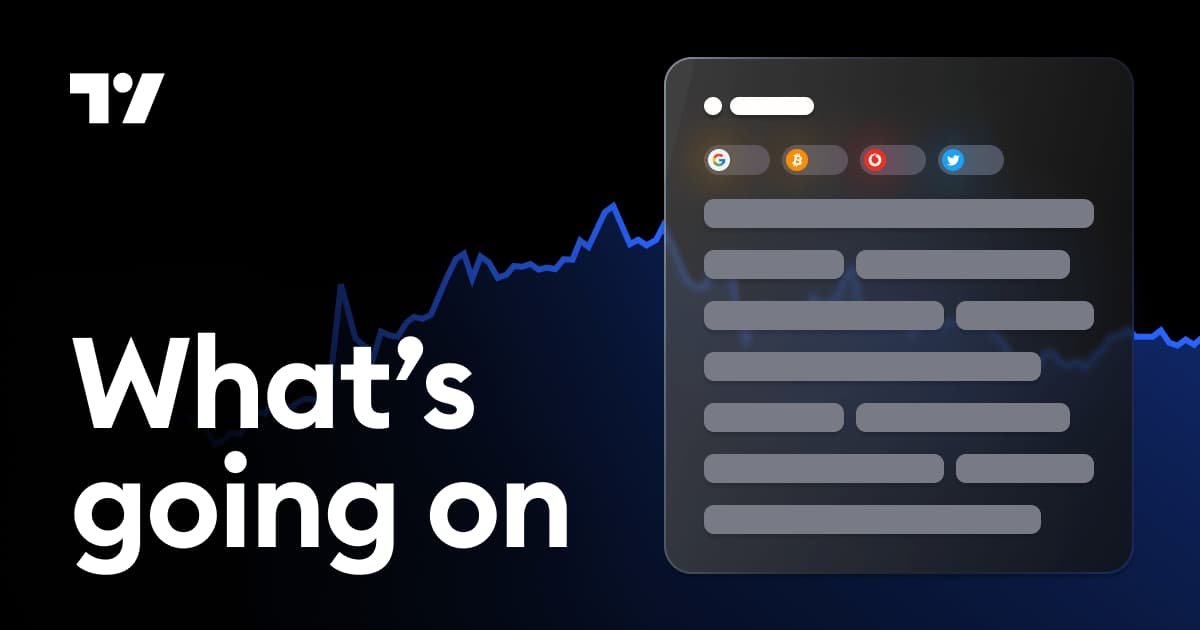Key Takeaways
I’ve recently dived into the world of cryptocurrency trading on Robinhood, and one question kept popping up in my research: does crypto trading on this popular platform count towards the pattern day trading rules? It’s a crucial distinction that many new investors overlook.
The line between casual crypto trading and day trading can be blurry, especially on user-friendly platforms like Robinhood. As I’ve discovered through my own trading journey, understanding these regulatory boundaries isn’t just about compliance—it’s about optimising your investment strategy and avoiding unexpected account restrictions.
Understanding Robinhood’s Cryptocurrency Trading Platform
Robinhood’s cryptocurrency platform offers a seamless experience for traders looking to dabble in digital assets. I’ve found their interface particularly intuitive compared to other crypto exchanges. The platform currently supports trading in major cryptocurrencies like Bitcoin, Ethereum, and Dogecoin, though their selection is more limited than dedicated crypto exchanges.
Key Features of Robinhood Crypto
Robinhood crypto trading comes with zero commission fees, making it attractive for budget-conscious investors. Their real-time market data helps me make informed decisions when executing trades. The platform also offers crypto price alerts and customizable watchlists that I’ve found invaluable for tracking potential investment opportunities.
How Cryptocurrency Trades Are Processed
Cryptocurrency trades on Robinhood execute differently than stock trades. The platform uses a system called “order collars” that helps protect users from dramatic price swings. Crypto trading hours extend 24/7, unlike the stock market’s limited schedule. This continuous availability has allowed me to respond to market movements regardless of time zone.
Limitations to Consider
Robinhood doesn’t provide cryptocurrency wallets, so you can’t transfer your coins to external wallets or use them for purchases. According to crypto analyst Jake Wujastyk, “Robinhood essentially gives you exposure to crypto prices without actual ownership of the underlying assets.” The platform also limits trading to about 19 cryptocurrencies, significantly fewer than specialized exchanges like Coinbase or Binance.
How Cryptocurrency Transactions Work on Robinhood
The Difference Between Crypto and Stock Trading on Robinhood
Cryptocurrency transactions on Robinhood operate similarly to stock trades but with key regulatory distinctions. The most significant difference is that crypto trading isn’t currently subject to the Pattern Day Trader (PDT) rule that applies to stocks. This means you can execute more than four day trades within five business days without needing the $25,000 minimum equity in your account. I’ve found this flexibility particularly beneficial when testing different crypto trading strategies without worrying about account restrictions.
You can trade cryptocurrencies using either cash or margin accounts on Robinhood. When using a cash account, you’ll avoid PDT rules entirely, though you’ll still need to wait for funds to settle after trades. Robinhood’s platform treats crypto as a separate asset class with its own unique trading mechanics.
Robinhood’s Crypto Trading Hours
Unlike the stock market with its fixed trading hours, cryptocurrency trading on Robinhood is available 24 hours a day, 7 days a week. This round-the-clock availability reflects the global, decentralised nature of cryptocurrency markets. I’ve personally appreciated being able to trade at weekends when traditional markets are closed.
Robinhood implements “order collars” for cryptocurrency trades to protect users from price volatility. These collars create boundaries around current market prices to prevent trades at extremely unfavourable rates. The platform processes crypto orders immediately, without the settlement periods typical of stock trades. However, during periods of extreme market volatility or maintenance, Robinhood may temporarily restrict trading activities to protect users and maintain platform stability.
Does Crypto Trading Count Towards the Pattern Day Trading Rule?
No, cryptocurrency trading does not count towards the Pattern Day Trading (PDT) rule. This provides traders with greater flexibility when trading digital assets on platforms like Robinhood.
Defining Pattern Day Trading Regulations
The Pattern Day Trading rule is a regulatory framework established by the Financial Industry Regulatory Authority (FINRA). This rule specifically identifies a pattern day trader as someone who executes four or more day trades within five business days. These day trades involve buying and selling the same security within a single trading day. To avoid PDT restrictions, traders must maintain a minimum balance of $25,000 in their margin account. This regulation aims to protect inexperienced traders from excessive risk in traditional securities markets.
Trading Limits and Restrictions for Crypto on Robinhood
Day Trading Limits
Unlike stock trading, cryptocurrency trading on Robinhood doesn’t count towards the Pattern Day Trader (PDT) rule limits. This significant distinction means you can execute multiple crypto trades within the same day without worrying about the $25,000 minimum balance requirement that applies to securities trading.
The Financial Industry Regulatory Authority (FINRA) regulations that typically flag accounts making four or more day trades within five business days don’t apply to cryptocurrency transactions on the platform. I’ve found this flexibility particularly valuable when taking advantage of crypto market movements throughout the week.
Robinhood allows you to day trade cryptocurrencies 24/7 without the restrictions that accompany stock trading. Market orders for crypto include protective “collars” that prevent execution if prices move more than 1% higher for purchases or 5% lower for sales from when you place the order.
Daily Trading
Robinhood’s crypto trading functions continuously, allowing transactions at any time throughout the day or night. This round-the-clock availability contrasts sharply with the limited trading hours of traditional stock markets.
The platform implements “order collars” as a protection mechanism against extreme price volatility. These collars effectively prevent orders from executing at unexpectedly different prices than what you intended when placing the trade.
During periods of extraordinary market volatility, Robinhood might temporarily restrict trading to maintain platform stability. These restrictions aren’t related to day trading limits but rather serve as circuit breakers during unusual market conditions.
Tax Implications of Cryptocurrency Trading on Robinhood
Cryptocurrency trading on Robinhood has significant tax implications you need to understand. Your crypto activities are subject to both capital gains and income tax, requiring careful record-keeping and reporting.
Reporting Crypto Trades on Your Tax Return
The IRS classifies cryptocurrencies as property, not currency, for tax purposes. Each crypto trade on Robinhood creates a taxable event that must be reported on your tax return. Short-term gains from crypto held less than a year are taxed at your ordinary income rate. Long-term gains from crypto held longer than a year benefit from lower capital gains rates. You’ll need to complete Form 8949 and Schedule D to properly report all cryptocurrency transactions. Remember that crypto-to-crypto exchanges also count as taxable events, not just when you convert to fiat currency.
How Robinhood Tracks Your Crypto Transactions
Robinhood provides annual tax documents summarising your cryptocurrency trading activity. These documents include Form 1099 that shows your total proceeds from crypto sales during the tax year. Robinhood uses the FIFO (First In, First Out) method to calculate your cost basis for tax purposes. The platform stores your transaction history, purchase prices, and sale amounts for each cryptocurrency trade you execute. You can download your crypto transaction history directly from your account settings for your records. While Robinhood tracks basic information, I’ve found it’s still essential to maintain your own detailed records for complete accuracy on tax filings.
Alternatives to Robinhood for Cryptocurrency Day Trading
While Robinhood offers convenient crypto trading without day trading restrictions, I’ve found several platforms that provide more robust features for serious cryptocurrency traders. These alternatives offer wider coin selections, advanced trading tools, and greater control over your digital assets.
Kraken
Kraken stands out as a powerful centralized exchange that accommodates multiple trades within short timeframes. The platform supports over 200 cryptocurrencies and offers advanced charting tools that help me spot trading opportunities. Kraken’s security measures are industry-leading, with 95% of assets stored in offline cold wallets.
Coinbase Pro
I’ve personally achieved better results using Coinbase Pro for day trading cryptocurrencies. The platform features a professional-grade interface with customizable charts and technical indicators. Coinbase Pro charges lower fees than standard Coinbase accounts, with tiered pricing that rewards higher trading volumes.
Binance
Binance has become my go-to platform for accessing the widest range of cryptocurrencies. With support for over 600 digital assets and trading pairs, I never feel limited in my trading options. The platform processes transactions at lightning speed, handling over 1.4 million orders per second during peak times.
FTX
FTX offers unique trading products that I haven’t found elsewhere. The platform specializes in derivatives trading, including futures and options on cryptocurrencies. FTX stands out for its lower trading fees compared to competitors, with maker fees starting at just 0.02%.
Gemini ActiveTrader
Gemini ActiveTrader provides institutional-grade tools in a user-friendly package. The platform offers robust security features and complies with strict regulatory standards. I appreciate its intuitive mobile app that lets me execute complex trading strategies on the go.
Best Practices for Day Trading Crypto on Robinhood
Choosing the Right Cryptocurrencies
When day trading crypto on Robinhood, I’ve found that selecting the right coins is crucial for success. Focus on cryptocurrencies with high liquidity and significant price volatility to maximise your trading potential. Bitcoin and Ethereum typically offer excellent trading opportunities due to their market dominance and price movements.
Avoid stablecoins like USDC or USDT for day trading purposes. These coins are designed to maintain stable values, which defeats the purpose of day trading where profit comes from price fluctuations. Instead, look for coins that regularly show 3-5% daily price movements.
Setting Up Effective Risk Management
I always establish strict risk parameters before executing any crypto trades on Robinhood. Never risk more than 1-2% of your total portfolio on a single trade, regardless of how confident you feel about the opportunity. This approach has saved me from significant losses during unexpected market downturns.
Use limit orders rather than market orders to specify exactly what price you’re willing to pay. Robinhood’s “order collars” system helps protect against extreme price swings, but setting your own limits provides an additional layer of protection against volatility.
Developing a Trading Strategy
My most profitable periods came after developing a consistent trading strategy for crypto on Robinhood. Technical analysis tools can help identify potential entry and exit points based on price patterns and indicators. Start with simple indicators like moving averages and relative strength index (RSI) to spot trends.
Track market news and announcements that might affect crypto prices. Since crypto markets operate 24/7, major announcements can happen any time and create trading opportunities outside traditional market hours. I’ve capitalised on price movements that occurred during weekends when stock markets were closed.
Maintaining Detailed Records
Keeping comprehensive records of all my crypto trades has been essential for both performance analysis and tax compliance. Document each transaction’s date, time, price, and your reasoning behind the trade. Robinhood provides transaction history, but maintaining your own records offers better insights into your decision-making patterns.
Remember that each crypto transaction creates a taxable event. Robinhood uses the FIFO method for calculating your cost basis, so understanding how this impacts your tax liability is crucial when executing multiple day trades.
Conclusion
Trading cryptocurrency on Robinhood gives you freedom from PDT restrictions that apply to stock trading. This unique flexibility lets you execute multiple crypto trades daily without maintaining the $25,000 minimum balance required for frequent stock trading.
Remember that crypto trading comes with significant tax implications though requiring careful record-keeping. I’ve found platforms like Kraken Coinbase Pro and Binance offer more robust features if you’re looking to advance beyond Robinhood’s basic offering.
For success focus on selecting cryptocurrencies with high liquidity practise strict risk management and develop a consistent strategy based on technical analysis. Whether you’re a beginner or experienced trader understanding these distinctions will help optimise your crypto trading journey and avoid unexpected account limitations.
Image courtesy: Jakub Zerdzicki
Log in to leave a comment
Established in 2004, The Leader Newspaper is a popular read for English-language speakers in Spain who are interested in news, sport, Spanish property, business, classifieds, and local information.
Email: office@theleader.info
Tel./Whatsapp: +34 637 227 385
© 2021 The Leader Digital. All Rights Reserved.





